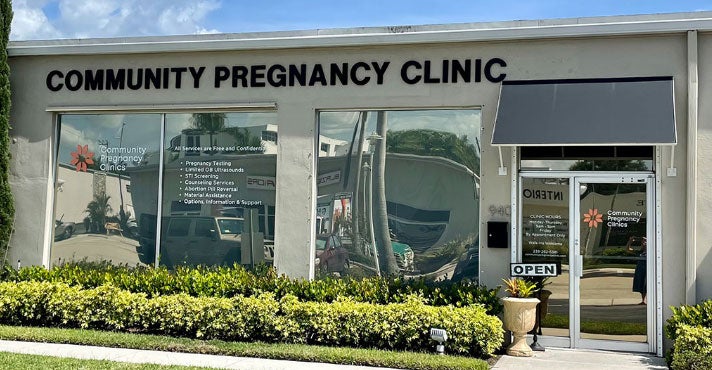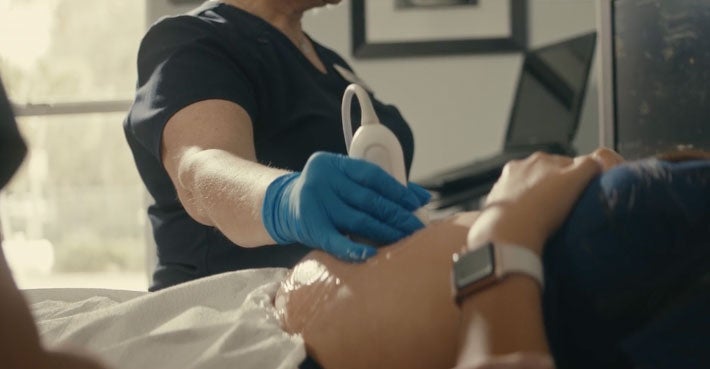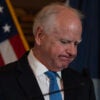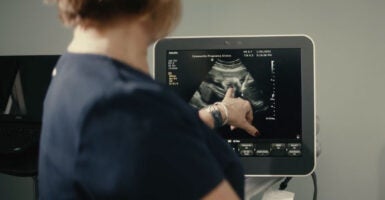I had just returned from the national March for Life in Washington, D.C., when I looked down at the positive pregnancy test in my hand, my boyfriend at my side. Time stopped as I felt my heart thump faster and faster—loudly—and despair and panic set in.
“I messed up so bad,” I cried as my knees buckled under the crippling anguish and disbelief.
I had lived a double life for most of my teenage years. My extensive involvement in my faith community, athletics, and music masked a struggle with chastity that I secretly couldn’t shake. Mothers would often approach me with their young daughters after I’d finish singing at Sunday Mass, sweetly saying, “My daughter wants to be just like you!”
Yet, behind the veil I presented to adults, I consistently bowed to the pressure of maintaining the “cool” and “popular” reputation I had with my high school peers.
For years, I rebelled from the countercultural example of my parents, who encouraged me to practice my faith in every way. I knew better, and even though I continued to fall, I felt that God was calling me to something higher—to which my response was always, “I’m not ready yet.”
The news of my pregnancy came at the most inconvenient time and sank my confidence and self-esteem. As a freshman in college, I was just starting to find my footing. I had always been the “big fish” in high school, and it had taken time to find my path in a bigger pond.
Yet, while it cast me into a pit of self-hatred and despair, it simultaneously—and miraculously—provided an immediate sense of clarity and purpose. I had always been a pro-life advocate with the desire to be a mom someday.
Despite my disappointment over the way it happened, I needed to make it work.
But I didn’t know how to make it work, or who to turn to. I knew the embarrassment and pain it would cause my parents, and at the time, my boyfriend was not pro-life.
A routine meeting with my cross-country team captain the next day, however, changed everything. She was the president of the Students for Life chapter on campus, and something told me I could trust her with my situation. I’m so glad I did.
Her joy-filled and congratulatory response caught me completely off-guard and made me feel human again when I hated myself.
She arranged an appointment for me at Community Pregnancy Clinics Inc., a medical clinic and partner of the Catholic university I was attending.
CPCI is the largest system of pregnancy resource centers in Florida, with five clinics and two mobile clinics throughout the state. These clinics provide free and confidential pregnancy tests, tests for sexually transmitted infections, ultrasounds, material assistance, diapers, cleansing wipes, and clothes to women and babies in need for up to three years after the baby is born.

Still without telling my family, I nervously attended the appointment, accompanied by my team captain. It was the first time I’d ever been completely honest with a medical professional about my lifestyle—but to my relief, I was met with total kindness and understanding from the nurse, who had been through a similar unplanned pregnancy herself.
CPCI, along with my university, took me under their wing and ensured that I had the support I needed to not only tell my parents, but carry my child to term, continue my education, and more. CPCI referred me to an OB-GYN for further appointments and offered free counseling services to help me cope.
Perhaps the biggest gift they offered was regular phone calls, with someone checking in to answer my questions and connect me with the right people for every new step of my pregnancy.
Pam Stenzel, founder of CPCI’s director of client services and founder of the SHARE (Sexual Health and Relationship Education) program, especially made me feel heard and loved, counseling me throughout those nine months.

No matter how my family would react, I knew I had CPCI to fall back on.
My parents did struggle with the news, but after many conversations about what was best for both me and my child, they embraced my situation wholeheartedly—even to the point of buying a new and bigger house for us to live with them in.
Meanwhile, my relationship with my boyfriend continued to strengthen. He respected my needs and desire to “do things right,” and he even began to show interest in my faith, eventually adopting it as his own. I fell more and more in love with him as I watched his fatherly instincts kick in, and the way he so selflessly loved me in some of my hardest moments.
Three months after having our son, we became engaged, and we were married seven months later.
Throughout my pregnancy, my Catholic university understood the state of depression that I was in and my struggle, literally, to put one foot in front of the other. It allowed me to take as much time as I needed, pausing my numerous scholarships and grants until my return. I ended up taking a year off of school after my son was born and just recently returned to campus, where I will soon finish my bachelor’s degree.
It comforts me to know that so many Catholic campuses around the nation are embracing programs to help women in similar situations.
While I was distraught and afraid throughout most of my pregnancy, I can say with certitude today that motherhood has made me the strongest and happiest I’ve ever been. Motherhood has become my whole life without erasing my identity. It has taught me how to be authentically myself and feel confident while strengthening my faith.
I now have life experience and a different perspective that fuels me every day to be the best wife, mom, daughter, student, and working professional that I can be.
The Daily Signal publishes a variety of perspectives. Nothing written here is to be construed as representing the views of The Heritage Foundation.
Have an opinion about this article? To sound off, please email [email protected] and we’ll consider publishing your edited remarks in our regular “We Hear You” feature. Remember to include the url or headline of the article plus your name and town and/or state.































